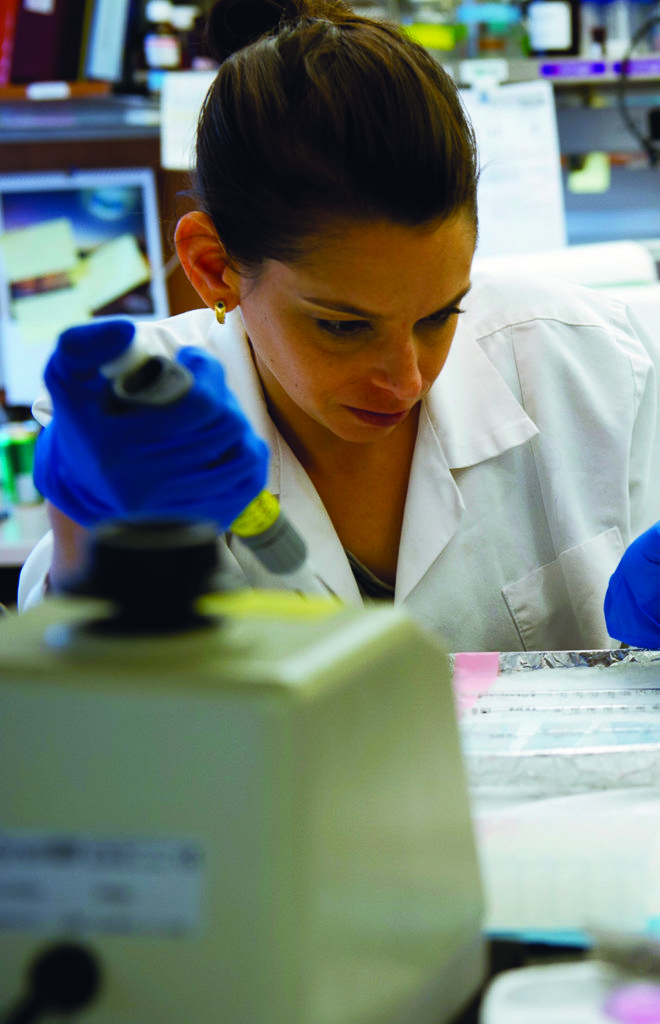
Investigators at The Feinstein Institute for Medical Research have discovered that an antibody—an immune protein in the body that fights illness or infection—can lead to abnormal brain development and Autism Spectrum Disorder (ASD) symptoms. These findings were recently presented at the 45th annual meeting of the Society for Neuroscience in Chicago.
ASD refers to a group of complex brain development disorders characterized by difficulties in social interaction and communication, repetitive behaviors, and motor dysfunction. In the U.S., ASD is estimated to affect 1 in 68 children. The causes of ASD remain unknown, but brain changes start very early in life, most likely in utero.
Researchers have previously identified genetic variants that may contribute to ASD, but ASD can likely also be caused by environmental risk factors, perhaps found in utero. Factors that may harm the fetal brain include maternal antibodies that bind to and interfere with brain cells. These antibodies have been identified in the blood of some mothers of ASD children. Mothers are protected from these antibodies by the blood-brain barrier, but embryos may be vulnerable before the barrier has formed.
Feinstein Institute researchers, including Lior Brimberg, PhD, lead author of the study and post-doctoral fellow, and Betty Diamond, MD, head of the Center for Autoimmune and Musculoskeletal Diseases, found that a particular monoclonal antibody isolated from a mother of an ASD child caused structural brain changes and ASD-like behaviors in male offspring. The researchers determined that the antibody attacks a protein on the membrane of brain cells that is key in neuronal morphology and function. In previous studies, the gene for that same protein had been linked to ASD, and the deletion of this protein in mice has been shown to lead to ASD-like behaviors.
“Our finding that a single maternal anti-brain antibody mediates fetal brain abnormalities and long-term behavioral changes provides new insight into ASD,” said Brimberg. “Our study suggests that by blocking maternal antibodies, a subset of cases of ASD might be preventable. With this finding, we are a step closer to developing treatments that could prevent the onset of ASD.”
This research was supported by funding from Simons Foundation, and Department of Defense. Brimberg presented these findings in a scientific presentation entitled “6421, Probing the contribution of maternal antibodies to Autism Spectrum Disorder,” during the annual meeting of the Society for Neuroscience in Chicago. The Society for Neuroscience is an organization of nearly 40,000 basic scientists and clinicians who study the brain and nervous system.



































